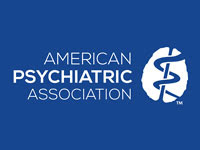
More than a quarter of parents with children over age 1 may show signs of depression, according to a report published this week in Pediatrics. The findings suggest that screening for parental depression beyond the immediate postpartum period has the potential to identify families in need of support.
“Early recognition and treatment of parental depression can mitigate negative effects on child health and development,” wrote Ava Marie Hunt, M.D., of the Children’s Hospital of Philadelphia and colleagues. Currently, the American Academy of Pediatrics recommends that pediatric clinicians screen for maternal depression during the initial postpartum period (the first year of life), the authors continued.
Hunt and colleagues searched PubMed, CINAHL, SCOPUS, Web of Science, and APA PsycInfo for studies concerning screening for maternal and/or paternal depression or mood disorders by a pediatric clinician when children were older than age 1.
The authors identified 41 studies, including more than 32,700 parents and caregivers, 68% of which included only mothers. An average of 25.5% of participants in the studies screened positive for depressive symptoms, with the highest reported proportion among mothers of patients with cystic fibrosis. Single motherhood and parental educational attainment less than a high school degree were associated with increased risk of depressive symptoms. Additionally, parental depression was associated with an increased risk of both child behavioral and physical health outcomes, including anxiety, depression, and malnutrition. It was also associated with parents’ negative views of child behavior. Four of the studies examined the acceptability of the parental depression screenings, and all found that screenings were acceptable to clinicians and/or parents/other caregivers.
The authors identified numerous gaps in the existing literature, including that structured screening programs outside of the postpartum period in pediatric settings were rare, especially for fathers. They also found that appropriate referral and follow-up of positive screens posed a major challenge in the studies.
“[T]he current literature clearly documents the high number of parents who screen positive outside of the immediate postpartum period as well as its impact on the well-being of parents and children,” the authors concluded. “The findings also suggest that additional research is required to assess the best practices for referral and follow-up of parents who screen positive for depressive symptoms to ensure they receive the support they need.”
For related information, see the Psychiatric News article “Postpartum Anxiety, Depression Raise Risk of Developmental Delays.”
(Image: iStock/SeventyFour
Don't miss out! To learn about newly posted articles in Psychiatric News, please sign up here.




















